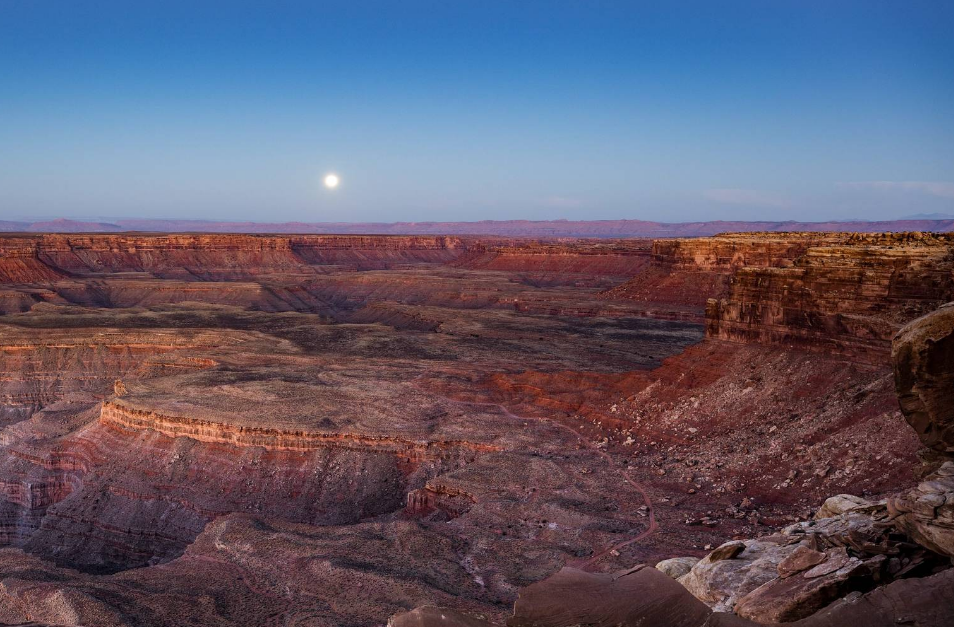Mr. Obama has repeatedly abused his authority under the Antiquities Act to declare vast new national monuments, including on the high seas. This week’s monument designations have been strongly opposed by state officials and GOP congressional leaders, including the unanimous delegation from Utah.
Trump Can Reverse Obama’s Last-Minute Land Grab
The White House is trying to lock up millions of acres, but no president can bind his successor.
As he prepares to leave office in three weeks, President Obama is still trying to shape his legacy. On Dec. 20 the White House announced the withdrawal of millions of acres of Atlantic and Arctic territory from petroleum development. This week Mr. Obama proclaimed 1.35 million acres in Utah and 300,000 acres in Nevada to be new national monuments. But all the soon-to-be ex-president will prove is the fleeting nature of executive power.
These actions, like many others he has taken, are vulnerable to reversal by President-elect Trump. In our constitutional system, no policy can long endure without the cooperation of both the executive and legislative branches. Under Article I of the Constitution, only Congress can enact domestic statutes with any degree of permanence. And because of the Constitution’s separation of powers, no policy will survive for long without securing and retaining a consensus beyond a simple majority.
As president, Mr. Trump can easily reverse the most unwarranted and costly regulations issued in the last few months. Under the Congressional Review Act (CRA), a simple majority of each house may expeditiously disapprove such regulations, so long as the president signs the bill. A CRA disapproval would have the added virtue of automatically prohibiting any future, “substantially similar” rule without congressional action.
Mr. Trump can clear the way for Congress by halting all current rule-makings and ordering agencies to stop enforcing rules enacted in the last two years (or longer). After their defense of the administration’s refusal to enforce the immigration laws, liberals would have no legitimate grounds to oppose Mr. Trump’s temporary enforcement halt.
Mr. Obama’s unilateral actions, by executive order, proclamation or memoranda, are even more vulnerable. The courts have declared some void, including the immigration deportation orders. Mr. Trump can simply order the Justice Department to acquiesce in those decisions and save the public the trouble of litigating others. Mr. Obama taunted his political adversaries that if he didn’t get what he wanted from Congress, he would use his “pen” and “phone.” Those tools also work in reverse.
No president’s action can bind a future president, just as no Congress can bind a future Congress. When the administration withdrew millions of acres of Atlantic and Arctic territory from petroleum development this month, a White House aide told the Washington Post that such withdrawals are permanent. White House officials also claimed Mr. Trump can’t undo the new national monuments.
Yet the Outer Continental Shelf Lands Act (Ocsla) and the Antiquities Act of 1906 do not even attempt to limit the president’s power to reverse previous withdrawals. In 2001 President George W. Bush reversed President Bill Clinton’s withdrawal of 50 million acres of seabed from exploration under Ocsla.
Mr. Obama has repeatedly abused his authority under the Antiquities Act to declare vast new national monuments, including on the high seas. This week’s monument designations have been strongly opposed by state officials and GOP congressional leaders, including the unanimous delegation from Utah.
The original purpose of the Antiquities Act was to protect archaeological sites and historic landmarks that “in all cases shall be confined to the smallest area compatible with proper care and management of the objects to be protected.” After studying the president’s legal authority, we conclude that he can rescind monument designations—despite the cursory but contrary view of Attorney General Homer Cummings in 1938. The history of presidential abuse led Congress in 1950 and 1980 to limit the act’s use in Wyoming and Alaska, respectively. While Congress could limit it further, the law’s text and original purposes strongly support a president’s ability to unilaterally correct his predecessors’ abuses.
In other words, none of Mr. Obama’s monument designations or drilling bans is permanent. The grant of power to a president implies the power to rescind it. In Myers v. United States (1926), the Supreme Court ruled that the president’s power to appoint officials, with the advice and consent of the Senate, includes the power to unilaterally remove them. In revoking an official’s commission that was issued after Senate confirmation, the president is negating a specific and official Senate act. Similarly, presidents have the constitutional authority to terminate a treaty, even though they need Senate advice and consent to make it.
Another prominent example of this principle is the executive’s power to issue regulations pursuant to statutory authority. When Congress grants discretionary authority to issue regulations, the courts have correctly held that it also confers the authority to substantially amend or repeal them. The rescission power need not be expressed in every statute; it is implied.
The hubris that has marked this administration knows no end. Declaring that its policies will last forever won’t make it so. But it should stiffen the spine of those who wish to see those policies reversed sooner rather than later.
Todd Gaziano, John Yoo
Mr. Gaziano is the executive director of the Pacific Legal Foundation’s Center in Washington, D.C. Mr. Yoo is a professor the University of California, Berkeley and a visiting scholar at the American Enterprise Institute.




It’s President Obama not Mister Obama. Furthermore when you say “lock up” I think it’s somewhat of a misnomer. When land is in private hands it is truly locked up. The public will be excluded from using it. No hiking, no biking, no hunting. Think about it. Doesn’t make sense to give it to corporations for short term gain. Think people.